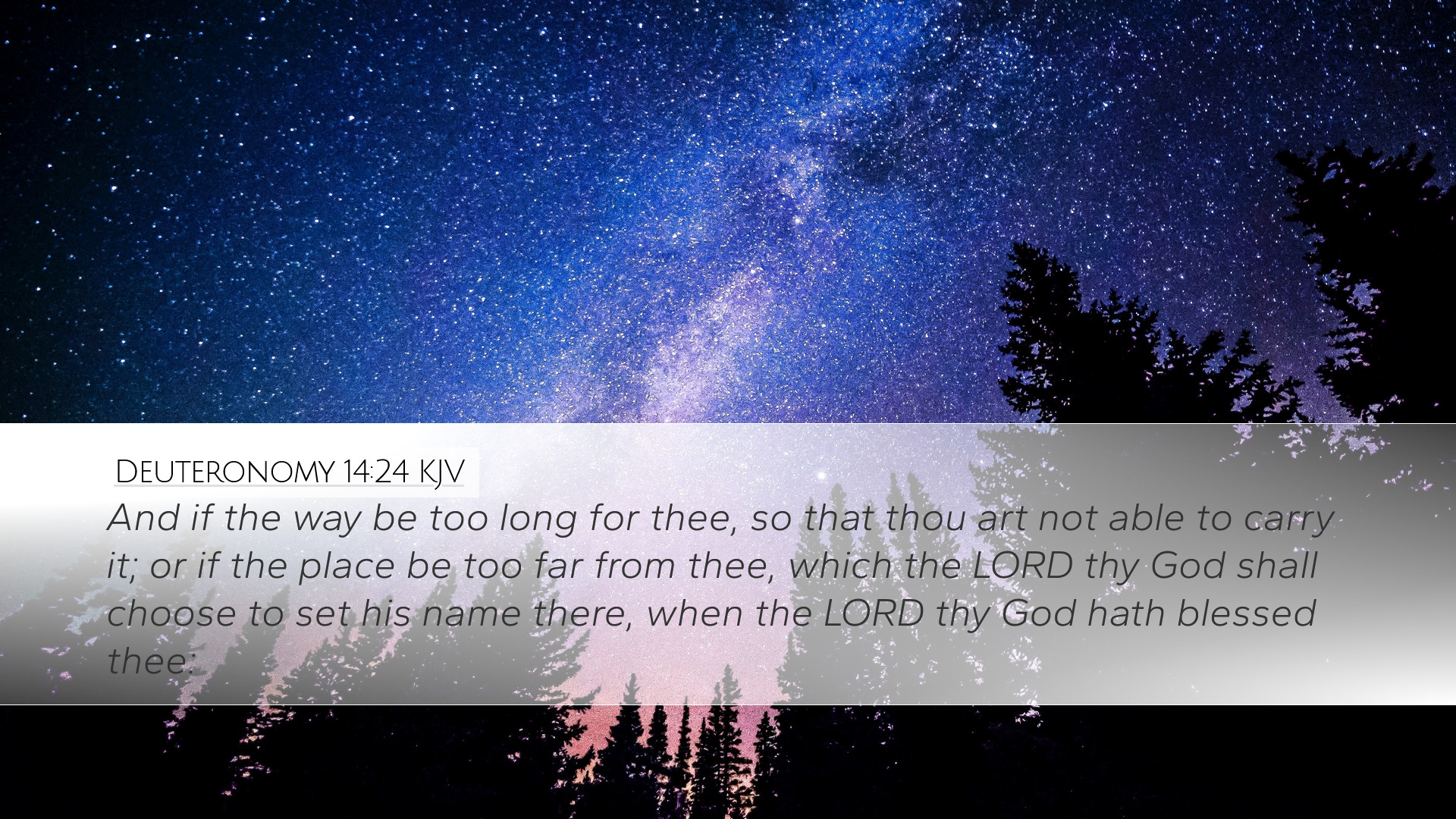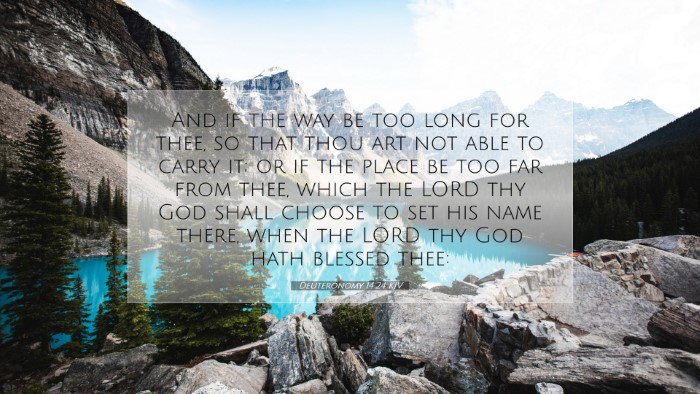Commentary on Deuteronomy 14:24
Text of Deuteronomy 14:24: "And if the way be too long for thee, so that thou art not able to carry it; or if the place be too far from thee, which the LORD thy God shall choose to set his name there, when the LORD thy God hath blessed thee."
Introduction
The verse presents a transitional thought in the discussion regarding the laws about tithing and consumption of certain foods designated for holiness and offerings. It reflects the practical consideration of the Israelites' geographical limitations and their spiritual obligations.
Commentary Insights
1. The Context of Tithes and Sacred Foods
According to Matthew Henry, this passage falls within a larger section regarding the sanctity of dietary laws and the obligations imposed upon the Israelites to bring their offerings to a central location. The command regarding tithes is designed to foster community and worship centered upon God's choice of place.
2. The Provision for Difficulty
Albert Barnes emphasizes that God is aware of human limitations. The stipulation in this verse acknowledges that not all individuals may have the means to transport their tithes or offerings over long distances. Therefore, this provision highlights God's understanding and compassion for His people, allowing for flexibility in their obligations.
3. The Divine Selection of Place
Adam Clarke comments on 'the place which the LORD thy God shall choose to set his name there.' This denotes not only a physical location that the Israelites are to regard as sacred but also a spiritual understanding that God's presence dwells among His people. The choice of location is critical to maintaining the integrity of worship.
4. The Nature of Blessing
The phrase 'when the LORD thy God hath blessed thee' indicates a recognition of God's providence. It implies that the obligations to bring offerings are rooted in the understanding of the blessings received from God. Henry points out that gratitude for God's blessings should motivate the act of giving.
Theological Implications
- Grace and Obedience: The ease and flexibility afforded in this passage reflect God's grace toward His followers, demonstrating that while obedience is required, it is met with understanding of human circumstance.
- The Centrality of Worship: By directing the people to a place chosen by God, it emphasizes the importance of communal worship and the necessity of coming together in the acknowledgment of God’s sovereignty.
- Understanding Blessings: This verse serves as a reminder for believers today to recognize the source of their blessings and the responsibilities that accompany such grace.
Practical Applications
For pastors and theologians, this passage can serve as a model for understanding the role of leadership in addressing congregational needs. Furthermore, it illustrates the delicate balance between law and grace within the framework of worship.
1. Understanding Congregational Limitations
Ministers can find encouragement in knowing that God does not expect more from congregants than what they are able to give. Flexibility and compassion in church demands should be hallmarks of pastoral care.
2. Encouraging a Culture of Gratitude
As tithing is associated with the blessings that God has provided, congregational teachings can focus on creating a culture of gratitude toward God, leading members to willingly share their resources as an act of worship.
3. The Importance of Choosing the Right Place
Churches can reflect on the concept of gathering in a space designated for worship. It should be a place where God’s name is honored, emphasizing that worship must not be treated as incidental but as a significant, dedicated act of devotion.
Conclusion
Deuteronomy 14:24 serves as a significant reminder for believers in all walks of life. It emphasizes the interplay between divine command, human limitations, and the assurance of God’s blessings. Through careful reflection on this verse, theologians can draw parallels to the broader themes of worship, community, and the grace that God extends to His people.


